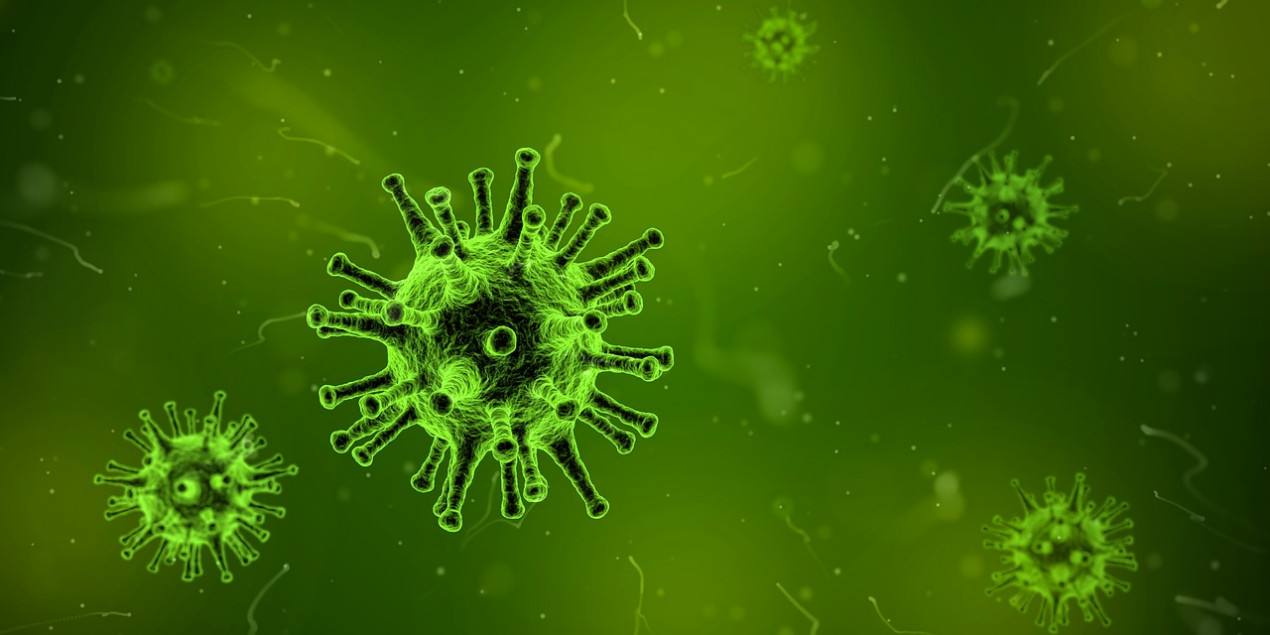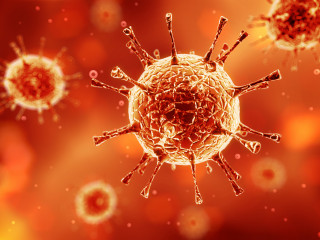We're here to help

Here are the answers to all the questions pet owners are asking about Covid-19
Concerns have been raised about pets contracting the new coronavirus after several animals tested positive for Covid-19 following close contact with infected humans.
However, veterinary experts and molecular virologists are keen to stress there remains no evidence that pets play a significant role in spreading the disease
Dogs can contract certain types of coronaviruses, such as the canine respiratory coronavirus, but this specific novel coronavirus, or Covid-19 as it’s known, is not considered to be a significant threat to pets.
In this Q&A, we answer some of the many questions pet owners are asking about Covid-19. For the most up-to-date advice for pet owners from the UK government click here.
Can my pet contract Covid-19?
While there have now been several instances of cats and dogs testing positive for Covid-19 through close contact with infected humans, based on the limited information available to date, there is still no evidence that pets are playing a role in the spread of the virus.
New studies released in July 2021 seem to add to other evidence which suggests dogs and cats may catch the virus from their owners. 
There is currently no evidence of spread of Covid from pets to humans – or from dogs and cats to other animals. The latest research backs up other evidence that the most likely route of virus transmission is from human to animal, rather than the other way round.
The study from the University of Utrecht in the Netherlands tested cats and dogs for Covid-19 in households that had the virus. It found that 4% of dogs and cats had positive PCR tests indicating active infection and 17% had antibodies indicating prior infection, suggesting that around 20% of exposed pets may have been infected.
If dogs and cats have been infected, they usually have no symptoms, or very mild respiratory symptoms or diarrhoea. 
It has been advised to distance as much as possible from your pets if you do have Covid-19 and it would be advisable to keep them isolated too if there is infection in the family home and avoid others walking your dog. If you are able to keep your cat indoors without causing them distress, whilst you isolate, then that would also be advisable. But rest assured there is currently no evidence that you can catch Covid from your pet.
Surely if a few pets can become infected, my pets could?
Given how widely distributed Covid-19 now is in the human population, there is a possibility for some animals to become infected through close contact with infected humans. But there remains no evidence that cats or dogs can spread Covid-19 to humans.
Can my pet transmit Covid-19 to my family or me?
Covid-19 is mainly spread through droplets produced when an infected person coughs, sneezes, or speaks. There is no evidence that pets can transmit the virus to humans.
However, it is sensible to use good hygiene precautions when in contact with animals at any time. This includes keeping your pets clean and washing your own hands thoroughly before and after touching them. Kissing pets or allowing them to lick your face is not recommended in any circumstances.
Special care should be taken to maintain good hygiene procedures in children and others who are less capable of self-directed hygiene, particularly those with pre-existing health issues or immune compromise.
You might also be interested in:
Didn't Covid-19 start in animals?
The most up-to-date evidence does suggest that Covid-19 emerged from an animal source. While investigations into this theory are ongoing, DNA data has shown that Covid-19 is a close relative of another coronavirus found in horseshoe bats. These are mainly found in tropical or subtropical areas. This was also the case with previous coronavirus outbreaks. The SARS coronavirus was associated with civet cats and the MERS coronavirus was transmitted by dromedary camels.

What should I do if my pet is sick or injured?
Pets should not suffer needlessly regardless of whether you have Covid-19 or not. If you’re worried about your pet’s health please follow the usual process of calling your vet for advice. If it’s during the day, phone your local vet. If it’s in the evening or at the weekend, you should call your nearest Vets Now pet emergency clinic.
You can find the latest guidance about seeking veterinary advice and visiting your vet here.
I've been diagnosed with Covid-19 or advised to self-isolate, how should I protect my pets?
If you can, ask another member of your household to care for your pets while you are sick. If this isn’t possible, you should restrict contact, just like you would around other people. This includes avoiding petting, snuggling, being kissed or licked, and sharing food.
Although there is no evidence that pets can play a role in the spread of this disease to humans, it’s always best practice to maintain good hygiene.
Always wash your hands thoroughly before and after you prepare your pet’s food or interact with them and, if you are ill, wear a facemask. You should always cough or sneeze into a disposable tissue or the inside of your elbow and avoid touching your face wherever possible.
Our advice is simply to take the same precautions with your pets as you would a member of your family.
What if I have suspected Covid-19 and my pet needs veterinary treatment?
If it’s non-urgent, you should wait at least seven days if you live by yourself, or 14 days if you live with others, before you schedule an appointment with your vet. If it’s an emergency and you are sick with Covid-19, please seek advice from your vet on how to best ensure your pet can be appropriately treated while minimising the risks of transmitting the virus to other people.
Our Video Vet service offers peace of mind by allowing you to speak with a specially-trained Vets Now clinician from the comfort of your home.
What if my pet is sick or injured and I'm in the high-risk group for Covid-19?
Try to arrange someone not at high risk of infection (elderly, pregnant woman, pre-existing health conditions) to bring your pet to the clinic. If this is not possible, please stay informed about your local Covid-19 situation and take as much preventative action as you can. This includes washing your hands regularly and thoroughly with soap and water, especially after touching surfaces, people and pets, avoiding close contact (approximately six feet) with people for a prolonged period of time, avoid touching your eyes, nose, and mouth, and covering your coughs or sneezes with a tissue, then throw the tissue in the bin.
If you are worried you may want to arrange an appointment with one of our emergency vets using our Video Vet service.
What if someone accompanying me to the vet is in the high-risk group for Covid-19?
Anyone travelling with you who is at high risk of infection should remain in the car for the time it takes for the consultation and treatment.
Should I keep my cat indoors as a precaution?
Contrary to some inaccurate reports in the media, vets are NOT advising that all cats be kept indoors during the Covid-19 pandemic. Only cats from infected or self-isolating households should be kept indoors as a precaution, and only if the cat is happy to be kept indoors. Some cats cannot stay indoors due to stress-related medical reasons. There isn’t a single case of a pet dog or cat infecting a human with Covid-19. Click here for more information.

Can I catch Covid-19 from my pet's fur?
While there is a possibility for some animals to become infected through close contact with infected humans, there remains no evidence that pets can transmit this virus to humans, according to both the OIE and the US-based CDC. The fact their hair is porous and fibrous also means it’s also less likely to survive on their fur for as long as it might on solid or shiny contaminated surfaces.
Scientific tests have been carried out into the survival rate of the coronavirus on various surfaces, with estimates suggesting it can live on stainless steel and plastic for two to three days. While we are not aware of any tests being carried out on animal fur or human hair, Dr Saad Omer, of the Yale Institute for Global Health, said that the virus was unlikely to live as long on porous surfaces such as hair compared to smoother surfaces. He added that while “theoretically” Covid-19 could be passed from hair to hands to mucosa, there is no direct evidence if that’s really the case.
Given this, you should always wash your hands thoroughly before and after interacting with your pets, their food or their belongings. If possible, you should also try to ensure your pet avoids unnecessary contact with other people.
What can I do to prepare for potentially catching Covid-19?
Try to find another person in your household who is willing and able to care for your pet in your home should you contract Covid-19. It’s also worth having an emergency plan in place and emergency supplies prepared, with at least two weeks’ worth of pet food and any medications you might need, just in case you have to go into quarantine or self-isolation.
Some useful resources:
World Organisation for Animal Health Q&A on Covid-19
UK government coronavirus advice for people with animals
Feline and Canine Coronaviruses: Common Genetic and Pathobiological Features
Centers for Disease Control and Prevention
The New Coronavirus and Companion Animals – Advice for WSAVA Members
